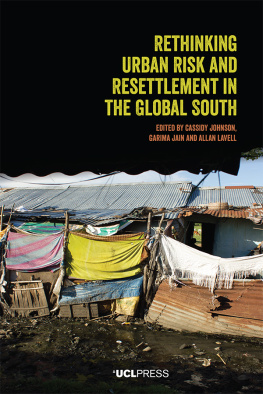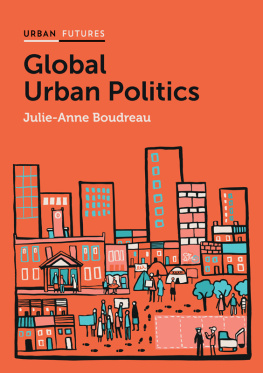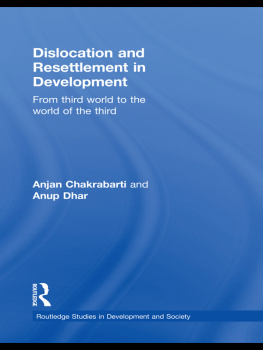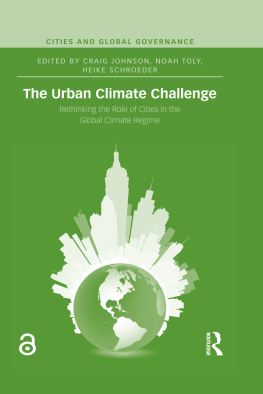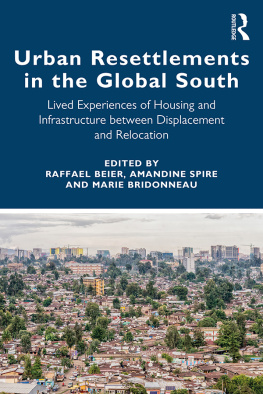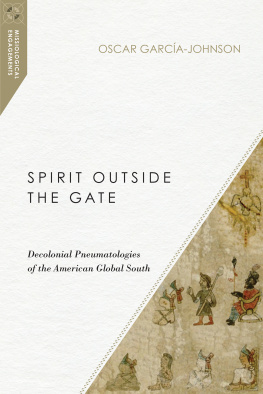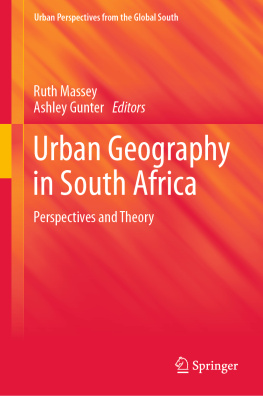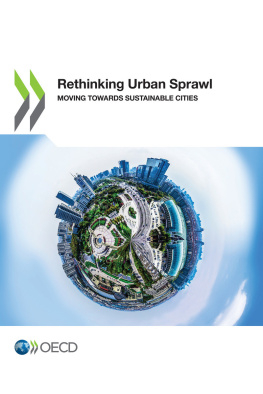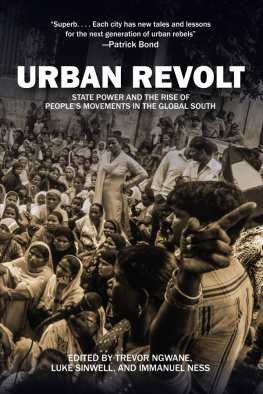Rethinking Urban Risk and Resettlement in the Global South
Rethinking Urban Risk and Resettlement in the Global South
Edited by
Cassidy Johnson, Garima Jain and Allan Lavell
First published in 2021 by
UCL Press
University College London
Gower Street
London WC1E 6BT
Available to download free: www.uclpress.co.uk
Collection Editors, 2021
Text Contributors, 2021
Images Contributors and copyright holders named in captions, 2021
The authors have asserted their rights under the Copyright, Designs and Patents Act 1988 to be
identified as the authors of this work.
A CIP catalogue record for this book is available from The British Library.
This book is published under a Creative Commons Attribution-Non-Commercial 4.0 International licence (CC BY-NC 4.0). This licence allows you to share and adapt the work for non-commercial use providing attribution is made to the author and publisher (but not in any way that suggests that they endorse you or your use of the work) and any changes are indicated. Attribution should include the following information:
Johnson, C., Jain, G. and Lavell, A. 2021. Rethinking Urban Risk and Resettlement in the Global South. London: UCL Press. https://doi.org/10.14324/111.9781787358287
Further details about Creative Commons licences are available at
http:// creativecommons.org/licenses/
Any third-party material in this book is published under the books Creative Commons licence unless indicated otherwise in the credit line to the material. If you would like to reuse any thirdparty material not covered by the books Creative Commons licence, you will need to obtain permission directly from the copyright holder.
ISBN: 978-1-78735-830-0 (Hbk.)
ISBN: 978-1-78735-829-4 (Pbk.)
ISBN: 978-1-78735-828-7 (PDF)
ISBN: 978-1-78735-831-7 (epub)
ISBN: 978-1-78735-832-4 (mobi)
DOI: https://doi.org/10.14324/111.9781787358287
Contents
Allan Lavell, Cassidy Johnson and Garima Jain
Allan Lavell
Anne-Catherine Chardon
Garima Jain
Cassidy Johnson, Garima Jain, Vineetha Nalla and Jos Delfn Cceres-Martnez
Shuaib Lwasa, Amir Bazaz and Garima Jain
Emily Wilkinson
Anthony Oliver-Smith
Angel Wilson Chvez Eslava
Colin Marx
Yves Cabannes
Giovanna Astolfo
Bill Flinn and Holly Schofield
Elizabeth Mansilla
Garima Jain, Chandni Singh and Teja Malladi
Teddy Kisembo
Garima Jain, Allan Lavell and Cassidy Johnson
Editors
Cassidy Johnson is Professor of Urbanism and Disaster Risk Reduction at the Bartlett Development Planning Unit, UCL. She was principal investigator on the Reducing Relocation Risk in Urban Areas project that this book is based on. Her academic interests are linked by a commitment to improving the quality of life and livelihoods of low-income groups living in urban areas in the global South. Her research contributes to the area of disaster risk reduction and disaster recovery and to the role of local governments and civil society in this and to integrating an understanding of disaster risk into development. This encompasses issues of urban planning, housing quality, building code regulations, informal settlements (and upgrading) and evictions. Her work engages internationally with policymakers as well as with local communities and she has worked in countries across Asia and Africa, including Turkey, Thailand, Bangladesh, India, Tanzania, Uganda and Malawi.
Garima Jain leads the urban risk and resilience team at the Indian Institute for Human Settlements. She was the co-principal investigator for the Reducing Relocation Risk in Urban Areas project that this book is based on. Her research and practice lie at the interface of development and climate and disaster risks, and her most recent work delves into the issues of disaster recovery with a focus on housing, land and infrastructure development policies and narratives. She teaches courses on integrated urban disaster risk reduction, urban sustainability and mixed research methods. She has a masters degree in public policy and urban planning from Harvard Kennedy School of Government and Harvard Graduate School of Design and has been an Urban Knowledge Network Asia Fellow at the Development Planning Unit, UCL. She provides strategic advisory to the National Disaster Management Authority in India, and has also been part of the Secretariat for the Sustainable Development Goals Agenda for Cities (SDG 11) for the United Nations Sustainable Development Solutions Network (UNSDSN).
Allan Lavell was the co-principal investigator for the Reducing Relocation Risk in Urban Areas project that this book is based on. He has a BSc from UCL and MSc and PhD in geography from the London School of Economics and Political Science. He is a founding member of the Latin American Network for the Social Study of Disaster Prevention (LA RED). He has spoken at more than 150 international conferences in 47 countries, written and published over 95 specialised items on disaster risk management and undertaken more than 90 consultancy missions in 32 different countries, for more than 20 international agencies. He was awarded the 2015 UN Sasakawa Award for contributions to disaster risk management under the theme Forging the Future. His present work involves technical support for the UNDRR regional assessment report on disaster risk in Latin America and the Caribbean, and work on systemic risk governance for the future and methodologies for evaluating COVID-19 response in Uruguay. He is now retired but was formerly employed between 1992 and 2020 for the Latin American Social Science Faculty.
Contributors
Giovanna Astolfo is an urban researcher with a background in architectural theory and practice. As a lecturer at the Bartlett Development Planning Unit at UCL, she combines research-based teaching and action learning from several contested and ungovernable urban geographies in South-East Asia, the Amazon region and southern Europe with a focus on non-conventional urbanisms, continuous displacement and migration, spatial violence and housing justice. She is principal investigator of the three-year project European Platform for Integrating Cities funded by the Asylum, Migration and Integration Fund. The project aims to reframe migration and integration away from current dominant, colonial and top-down paradigms, and instead conceptualise them as relational practices. She is also principal co-investigator of the two-year research project Framing Living Heritage as Tool to Prevent Spatial Violence in Yangon, funded by the British Academy. The project aims to frame the potential of a living heritage approach to informal settlements and to challenge existing spatial violence dynamics in Yangon, Myanmar.
Amir Bazaz is a senior consultant for the Indian Institute of Human Settlements, where he works on issues at the intersection of economics, climate change mitigation and sustainable development. He has substantial experience of working with various top-down and bottom-up economyenergyenvironment modelling frameworks. His current research interests are low-carbon societies and infrastructure, climate change adaptation and urbanclimate change linkages. He started his career in the manufacturing industry, working across functional responsibilities of projects, production planning/control and engineering. He has been the expert consultant to Indias Ministry of Environment and Forests and for the National Communication to the UNFCCC project, and has taught courses in development and environmental economics.


